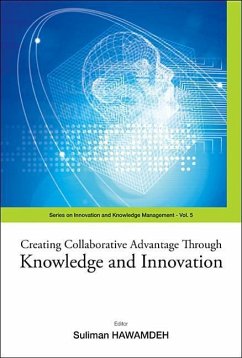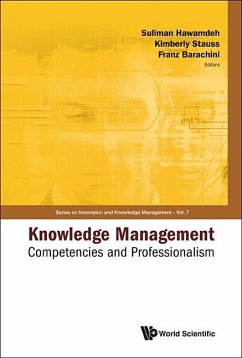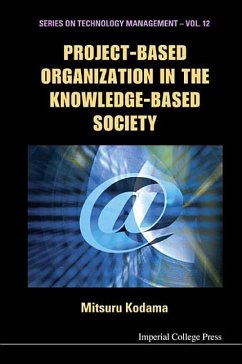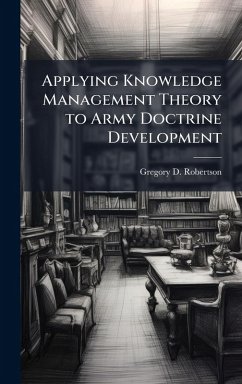
High Performance Individuals and How They Manage Their Personal Knowledge for Decision-Making
Versandkostenfrei!
Versandfertig in über 4 Wochen
29,99 €
inkl. MwSt.
Weitere Ausgaben:

PAYBACK Punkte
15 °P sammeln!
Individuals at all organizational levels face a continuous struggle to manage their knowledge as they perform their duties, and effective personal knowledge management of the individual workers are an essential component of high-quality decision-making. In the past, information technology was seen as key to managing personal knowledge, but sociotechnical theory, when applied to personal knowledge management, tells us that we must also consider the people, organizational structure, and the task to be accomplished. It has been argued that effectively managing personal knowledge can lead to bette...
Individuals at all organizational levels face a continuous struggle to manage their knowledge as they perform their duties, and effective personal knowledge management of the individual workers are an essential component of high-quality decision-making. In the past, information technology was seen as key to managing personal knowledge, but sociotechnical theory, when applied to personal knowledge management, tells us that we must also consider the people, organizational structure, and the task to be accomplished. It has been argued that effectively managing personal knowledge can lead to better decisions, and this research explores the relationship between personal knowledge management, high performance individuals, and decision-making. As such, the purpose of this exploratory research is to investigate this phenomenon in a USAF context. A convenience sample of 11 high performance USAF leaders was used to explore personal knowledge management in the USAF. Chief Master Sergeants, Colonels, and Generals were interviewed, and the responses analyzed to determine if high performance leaders use people and technology to manage personal knowledge and if the need to manage personal knowledge has affected the task to be accomplished and the organizational structure. Additionally, this research seeks to determine if high performance leaders perceive some methods of managing personal knowledge to be more effective than others and if issues exist with the methods they are using. This research provides a starting point for future research and provides better insight into personal knowledge management issues. This work has been selected by scholars as being culturally important, and is part of the knowledge base of civilization as we know it. This work was reproduced from the original artifact, and remains as true to the original work as possible. Therefore, you will see the original copyright references, library stamps (as most of these works have been housed in our most important libraries around the world), and other notations in the work. This work is in the public domain in the United States of America, and possibly other nations. Within the United States, you may freely copy and distribute this work, as no entity (individual or corporate) has a copyright on the body of the work. As a reproduction of a historical artifact, this work may contain missing or blurred pages, poor pictures, errant marks, etc. Scholars believe, and we concur, that this work is important enough to be preserved, reproduced, and made generally available to the public. We appreciate your support of the preservation process, and thank you for being an important part of keeping this knowledge alive and relevant.












